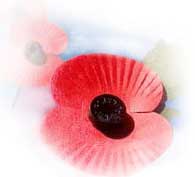

There were, in 1914, two uniformed services in Britain that were open to women, The First Aid Nursing Yeomanry (FANY) and Voluntary Aid Detachments (VADs). Both were perceived to recruit from the middle and upper classes. The First Aid Nursing Yeomanry was created in 1907 as a link between front line fighting forces and field hospitals. During WWI, FANYs ran field hospitals, drove ambulances, set up soup kitchens and ran troop canteens. They worked in dangerous conditions and their bravery resulted in 17 Military Medals, 1 Legion d'Honneur and 27 Croix de Guerre being awarded.
Voluntary Aid Detachments (VADs) of nurses were formed in 1909 to provide medical assistance in times of war. Of the 74,000 VADs in 1914, two-thirds were women and girls.
At first, the
War Office were unwilling to accept VADs at the front but this restriction
was removed in 1915 when women volunteers over the age of 23 with over three
months' experience were allowed to go overseas. VADs found themselves providing
assistance on the Western Front, Mesopotamia, the Eastern Front and in Gallipoli.
During the next 4 years 38,000 VADs worked as assistant nurses, ambulance
drivers and cooks. VAD hospitals were also opened in most large towns in Britain.